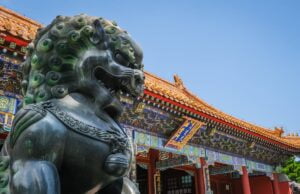Gardening and eight mansions Ba Zhai (八宅) Feng Shui
 Gardening is not everyone’s cup of tea; personally, I love it; I find it very relaxing and enjoyable. In the practice of Feng Shui, the garden is often overlooked, but it really is the key to good Feng Shui. If you think about it, what is the point of having the perfect Feng Shui home if the area around you is producing bad energy. All this energy comes into your home via your doors and windows, and if you have clutter and junk in this area, this will be the energy your home will receive.
Gardening is not everyone’s cup of tea; personally, I love it; I find it very relaxing and enjoyable. In the practice of Feng Shui, the garden is often overlooked, but it really is the key to good Feng Shui. If you think about it, what is the point of having the perfect Feng Shui home if the area around you is producing bad energy. All this energy comes into your home via your doors and windows, and if you have clutter and junk in this area, this will be the energy your home will receive.
In Feng Shui, Eight Mansions is called Eight Houses and is a commonly used formula for determining if you and your home are compatible. You can use the results of the formulation to find your Gua number Trigram and determine your four auspicious directions and four inauspicious directions for you and your home/garden.
A good Feng Shui garden will help attract nourishing, high-quality Qi (Chi) to your home, as well as delight all your senses. The size of your garden is not the main criterion, but I understand that it is lovely to be surrounded by a big, lush garden; if all you have is just a tiny space to work with, you can still create a good Feng Shui garden. The main tools used in creating a good Feng Shui garden design are the same tools you use in creating a good Feng Shui home. You will need to know either the Xuan Kong natal chart, eight mansions Bagua, or the energy map of your home, as your garden Bagua is an extension of your home Bagua.
You will also need to understand the five elements theory and know how to strengthen each area to bring auspicious energy. For example, the northeast area of your garden is connected to the energy of personal growth and self-cultivation, and the Feng Shui element needed in this area is Earth.
If you are looking to add a water feature to your garden, areas such as southeast (Money & Abundance); East (Health & Family) and North (Career & Path in Life) are excellent areas for water elements. In designing your Feng Shui garden, be sure to allow gently curving pathways for Qi to flow smoothly. Straight lines are rarely present in nature, so use relaxing, flowing shapes and pathways for your Feng Shui garden.
 Good garden decor can be used as a subtle cure. Think of the Bagua energies needed in each area and match your garden decor accordingly. For example, an outdoor fountain with floating golden bells is excellent for the Money & Abundance of energy (Southeast), while a metal sculpture of a turtle is an excellent protection cure for the North of your garden. If you want to create a play area for your children in the garden, the West area is recommended as it is connected to the energy of children and creativity.
Good garden decor can be used as a subtle cure. Think of the Bagua energies needed in each area and match your garden decor accordingly. For example, an outdoor fountain with floating golden bells is excellent for the Money & Abundance of energy (Southeast), while a metal sculpture of a turtle is an excellent protection cure for the North of your garden. If you want to create a play area for your children in the garden, the West area is recommended as it is connected to the energy of children and creativity.
Wind chimes are an excellent addition to any garden, as their gentle sound creates healing vibrations in the air. There is a variety of wind chimes that we sell on our website – from metal to crystal – with various symbols, colours and numbers of strings and rods. While each element of the wind chime design is essential, I would say the sound of the chime is always a deciding factor for me (along with the look, of course.)
Working with colours is a great way to emphasise various rhythms in your garden. In Feng Shui, colour is used according to the five elements theory, and you can bring healing harmony and joy to your garden by choosing colours that emphasise specific energies, such as, for example, the Fire energy in the south with red or purple flower colours, or earth energy in the southwest with light yellow colour.
Enjoy creating your garden and bring items, colours and natural elements that bring you pleasure to look at. The more joyful energy you put into your garden, the more joyful and healing energy the garden will reflect back to you, as well as to your home.
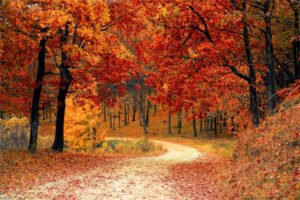 After the autumn season, in particular, leaves start to accumulate, which quickly stagnates and stops the flow of Qi, so get the gloves on and remove them from your garden. If you have forgotten about a bucket that’s hiding behind something- check it! There could be stagnated water lying in there which can cause you many problems depending on whereabouts it has been sitting. If there is stale water in there, you should try and dispose of it by tipping it down a drain which leads away from your home. When clearing up in the garden, make sure you clean every corner and crack properly. Any negativity should be washed anyway to allow new positive Qi to enter.
After the autumn season, in particular, leaves start to accumulate, which quickly stagnates and stops the flow of Qi, so get the gloves on and remove them from your garden. If you have forgotten about a bucket that’s hiding behind something- check it! There could be stagnated water lying in there which can cause you many problems depending on whereabouts it has been sitting. If there is stale water in there, you should try and dispose of it by tipping it down a drain which leads away from your home. When clearing up in the garden, make sure you clean every corner and crack properly. Any negativity should be washed anyway to allow new positive Qi to enter.
Your garden can be a perfect retreat in the stressful times we live in, especially with the recent Covid 19 events and now the latest economic downturn here in the Uk and seems worldwide; with regards to Feng Shui, it is so vital that you balance the Yin and the Yang in the garden; you can have the ideal Feng Shui home if it is not balanced with your garden your efforts will be wasted. The reason for this is that with an untidy garden, you will not get free-flowing Qi, and it will stagnate, and this stagnant Qi will end up in your home, and this WILL affect health, wealth, relationships and every other aspect of your life.
I remember many years ago, as we were having a hectic year, and we had neglected the garden and forgotten about a big bucket of water at the back of our house, which is southwest of our home. Please don’t ask me how we forgot about a big black bucket which was clearly visible. I guess I could say we just kept saying, ‘we will dispose of it tomorrow or at the weekend,’ and that tomorrow or the weekend just kept lasting forever.
I can’t count how many problems that bucket of water caused Jo and me. It affected our relationship and drove us to argue with each other, which is very rare for us and as with every other time in my life when things go wrong, I get the plans out and check all over the home and garden, and low and behold, this stagnant bucket of filthy water was located in the SW sector which controls relationships.
As you can see by the Ba Gua below, the stagnant water (negative energy) was in the southwest, which was causing relationship problems between the both of us and to top it off, the SW for that year was inhabited by the #3 argumentative star.
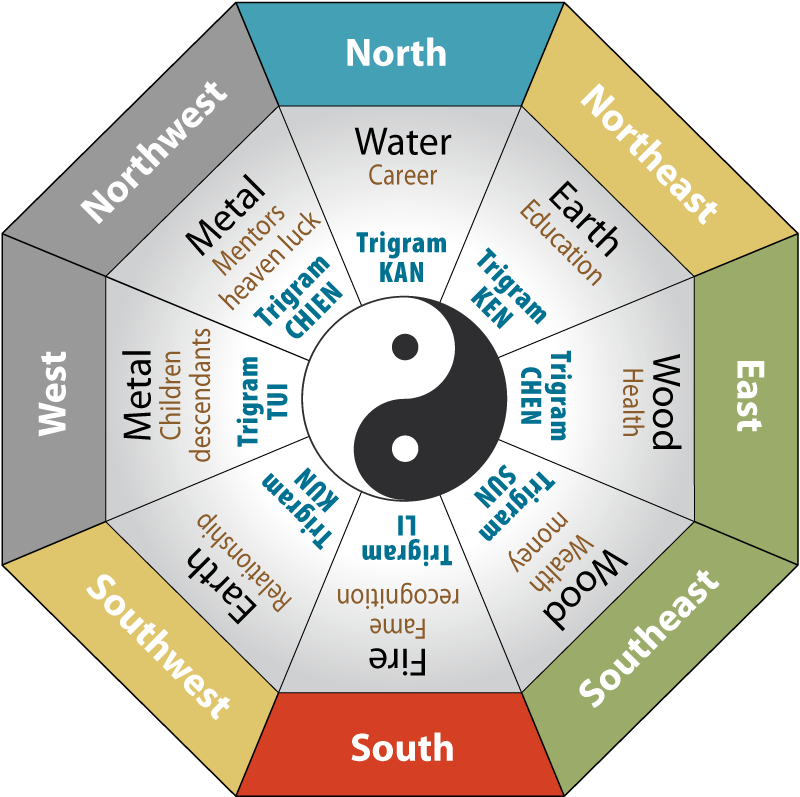
If you are thinking about changing the way your garden looks, putting decking down instead of grass, or a new patio, be aware of sharp angles, corners and columns. These can create what’s known as Sha Chi poison arrows. These angles redirect the energy funnelling it into a powerful thrust that transforms Qi into Sha energy.
Certain types of plants are essential in your garden and home, do not use cactus or plants that have spikes as they produce hostility and tension. Plants with fat juicy leaves are very auspicious. Overbearing large trees that are close to the home are not good either. Always try and have them no higher than two-thirds of your home.
Try and fill your garden with colourful plants all year round; they will attract good energy as well as look great. Using herbs in the wealth area southeast to create good wealth and luck. The use of herbs in your garden not only adds colour and life, but they can also have a powerful influence on your life. They also contain medicinal properties that have been used for centuries.
Basil prefers to grow apart from other plants and is said to promote individual and good fortune in personal ventures; planted in the northern area and is not used whilst pregnant.
Jasmine lifts the spirits of depressed or those with marital problems, planted in the southwest to improve relationships or southeast to improve money luck. I love lavender, not just for its healing and aroma properties, but as a plant; you can place it anywhere in your garden; below a bedroom window is excellent to promote better sleep.
Even back in 1986, when Jo was pregnant with Daniel, the health visitors encouraged all of the pregnant ladies to use lavender to help them relax not only during the 40-week wait for their babies but during the labour process too. Way back in the 80s, when I first started using essential oils, I thought it was an old wife’s tail, but it actually does help you relax, and from what Jo said, it 100% makes the labour process just a little bit easier.
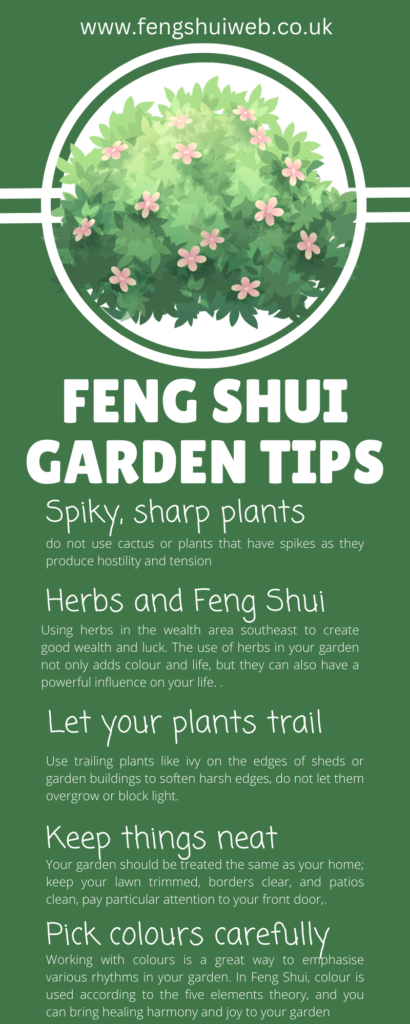
Rosemary aids bad memory; plant it in the southwest to encourage remembrance. Do not use it when pregnant or if you suffer from epilepsy; in fact, always seek medical advice before using most essential oils.
Your garden should be treated the same as your home; keep your lawn trimmed, borders clear, and patios clean, pay particular attention to your front door, and make sure it is unobstructed and no paintwork is peeling or cracked. Always clear blocked drains as these will have a severe effect on finances, mainly if located in the southeast.
Use trailing plants like ivy on the edges of sheds or garden buildings to soften harsh edges, do not let them overgrow or block light. Hide your rubbish bins behind a screen if possible and do not have seating near them. If you have a BBQ, have it in the south, southeast or northeast, as it will stimulate the inherent energy. Try and use your garden as a sanctuary. You will be surprised at how much better you will feel after sitting in the sun or watching the wildlife.
I know I have got you all thinking, wondering if your garden needs a good tidy up.. now Autumn is almost here It is the perfect time to get the bulbs in and get the garden looking excellent for those relaxing summer evenings and BBQ parties with families and friends.
It is also essential with 2023 Yin Water Rabbit (Gui Mao) around the corner, and of course, in 2024, we have the long-awaited period 9 arrive, and the 21 odd years will be the most crucial times wherever you live in the world, so start preparing the home and garden now.
“Every time you think you’ve graduated from the school of experience, somebody thinks up a new lesson.”




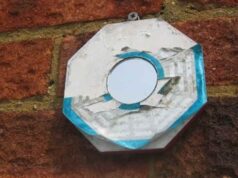
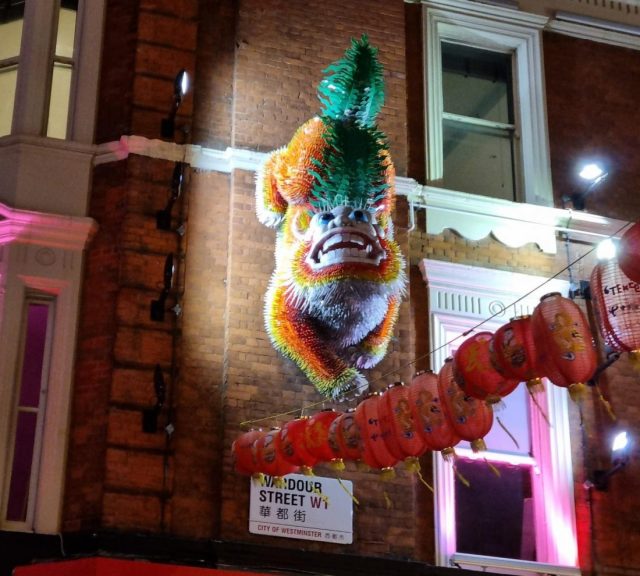


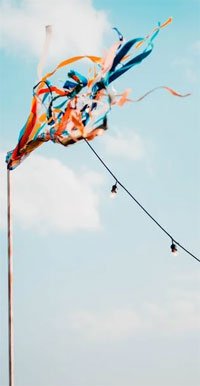 Qi can take any of five general states: Prosperous, Growing, Retreating, Dead or Killing and with
Qi can take any of five general states: Prosperous, Growing, Retreating, Dead or Killing and with  Sheng Qi is produced by lush, green mountains and slowly meandering, clean waterways. On the other hand, Sha Qi occurs in areas where mountains are sharp, rocky or barren, or waterways rush too quickly or are dirty. Windswept areas are also indicative of the presence of Sha Qi since wind can disperse Qi.
Sheng Qi is produced by lush, green mountains and slowly meandering, clean waterways. On the other hand, Sha Qi occurs in areas where mountains are sharp, rocky or barren, or waterways rush too quickly or are dirty. Windswept areas are also indicative of the presence of Sha Qi since wind can disperse Qi.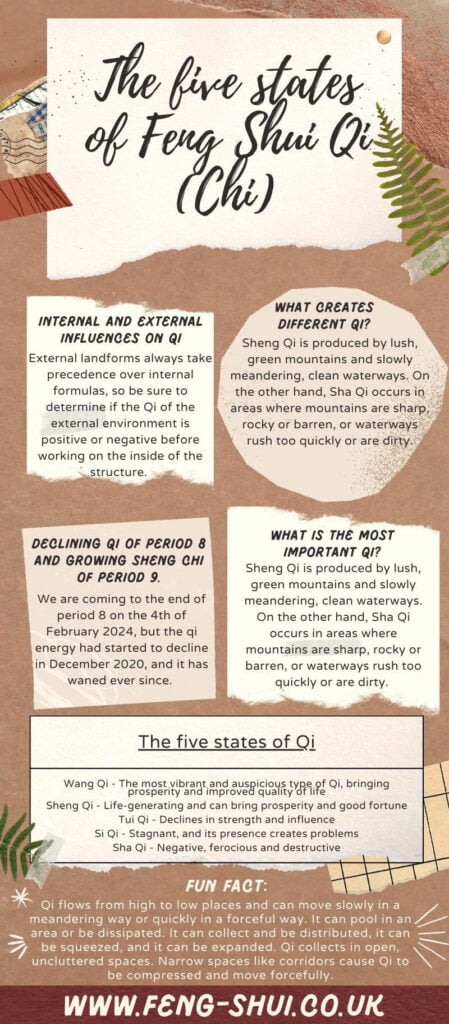


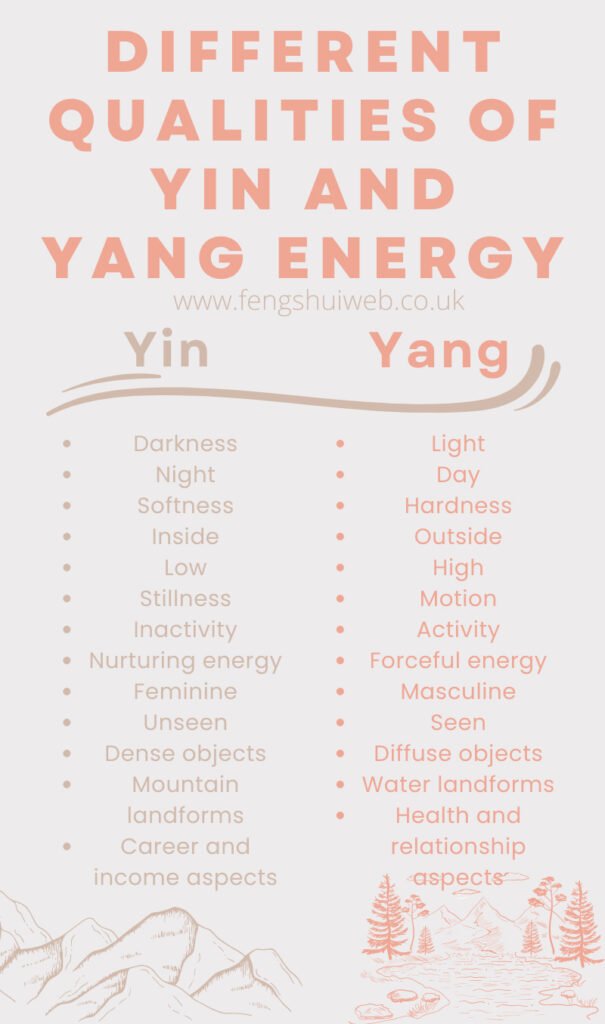
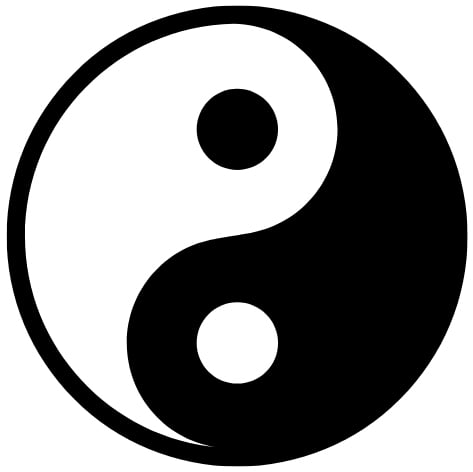
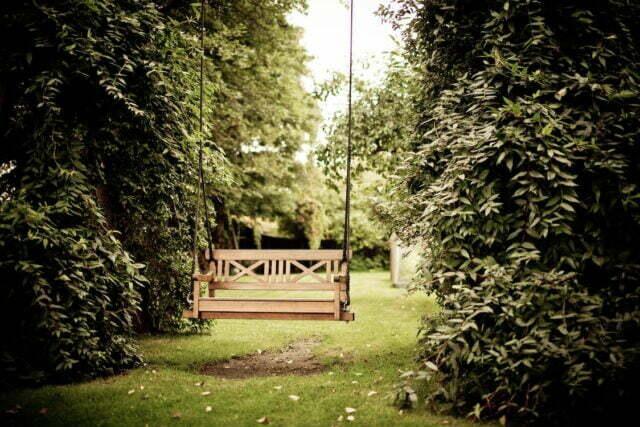
 Gardening is not everyone’s cup of tea; personally, I love it; I find it very relaxing and enjoyable. In the practice of Feng Shui, the garden is often overlooked, but it really is the key to good Feng Shui. If you think about it, what is the point of having the perfect Feng Shui home if the area around you is producing bad energy. All this energy comes into your home via your doors and windows, and if you have clutter and junk in this area, this will be the energy your home will receive.
Gardening is not everyone’s cup of tea; personally, I love it; I find it very relaxing and enjoyable. In the practice of Feng Shui, the garden is often overlooked, but it really is the key to good Feng Shui. If you think about it, what is the point of having the perfect Feng Shui home if the area around you is producing bad energy. All this energy comes into your home via your doors and windows, and if you have clutter and junk in this area, this will be the energy your home will receive. Good garden decor can be used as a subtle cure. Think of the Bagua energies needed in each area and match your garden decor accordingly. For example, an outdoor fountain with floating golden bells is excellent for the Money & Abundance of energy (Southeast), while a metal sculpture of a turtle is an excellent protection cure for the North of your garden. If you want to create a play area for your children in the garden, the West area is recommended as it is connected to the energy of children and creativity.
Good garden decor can be used as a subtle cure. Think of the Bagua energies needed in each area and match your garden decor accordingly. For example, an outdoor fountain with floating golden bells is excellent for the Money & Abundance of energy (Southeast), while a metal sculpture of a turtle is an excellent protection cure for the North of your garden. If you want to create a play area for your children in the garden, the West area is recommended as it is connected to the energy of children and creativity. After the autumn season, in particular, leaves start to accumulate, which quickly stagnates and stops the flow of Qi, so get the gloves on and remove them from your garden. If you have forgotten about a bucket that’s hiding behind something- check it! There could be stagnated water lying in there which can cause you many problems depending on whereabouts it has been sitting. If there is stale water in there, you should try and dispose of it by tipping it down a drain which leads away from your home. When clearing up in the garden, make sure you clean every corner and crack properly. Any negativity should be washed anyway to allow new positive Qi to enter.
After the autumn season, in particular, leaves start to accumulate, which quickly stagnates and stops the flow of Qi, so get the gloves on and remove them from your garden. If you have forgotten about a bucket that’s hiding behind something- check it! There could be stagnated water lying in there which can cause you many problems depending on whereabouts it has been sitting. If there is stale water in there, you should try and dispose of it by tipping it down a drain which leads away from your home. When clearing up in the garden, make sure you clean every corner and crack properly. Any negativity should be washed anyway to allow new positive Qi to enter.


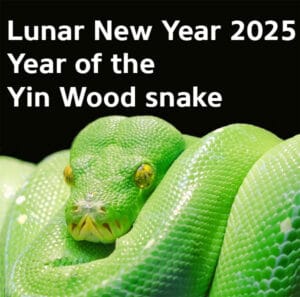 The Chinese zodiac is a twelve-year cycle, each represented by an animal, and 2025, the Year of the Snake, the sixth sign in the zodiac. Those born under the Snake are known to possess traits such as intelligence, charm, and deep intuition. In Chinese culture, the snake is considered a symbol of wisdom and mystery. Its association with the Wood element this year brings a fresh energy that emphasizes growth, flexibility, and balance, as wood is tied to creativity and vitality in Chinese metaphysics.
The Chinese zodiac is a twelve-year cycle, each represented by an animal, and 2025, the Year of the Snake, the sixth sign in the zodiac. Those born under the Snake are known to possess traits such as intelligence, charm, and deep intuition. In Chinese culture, the snake is considered a symbol of wisdom and mystery. Its association with the Wood element this year brings a fresh energy that emphasizes growth, flexibility, and balance, as wood is tied to creativity and vitality in Chinese metaphysics.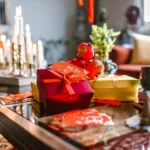 Homes, streets, and businesses are adorned with bright red banners and lanterns, as red is considered a lucky colour that wards off evil spirits. You’ll also see paper cutouts of the Chinese character 福 (fú), meaning “blessing” or “good fortune,” often hung upside down to symbolise that luck is “arriving.”
Homes, streets, and businesses are adorned with bright red banners and lanterns, as red is considered a lucky colour that wards off evil spirits. You’ll also see paper cutouts of the Chinese character 福 (fú), meaning “blessing” or “good fortune,” often hung upside down to symbolise that luck is “arriving.”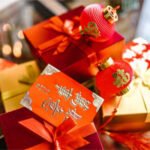 Known as Ang Pow, red envelopes filled with money are gifted to children and unmarried young adults as a symbol of luck and prosperity. The envelopes are often handed out by elders or employers to wish their recipients good fortune in the coming year. The money inside is usually an even number, as odd numbers are associated with funerals in Chinese culture.
Known as Ang Pow, red envelopes filled with money are gifted to children and unmarried young adults as a symbol of luck and prosperity. The envelopes are often handed out by elders or employers to wish their recipients good fortune in the coming year. The money inside is usually an even number, as odd numbers are associated with funerals in Chinese culture.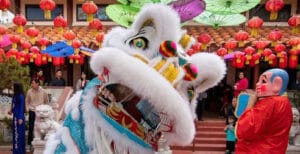 The origins of Chinese New Year can be traced to ancient myths and legends, the most famous of which is the story of Nian, a fearsome beast believed to terrorize villages on New Year’s Eve. According to legend, Nian would emerge to devour crops, livestock, and even villagers. To ward off the beast, the villagers discovered that it feared loud noises and the colour red. This is why firecrackers, red decorations, and festive displays became integral to the celebrations—symbolising the victory over Nian and the ushering in of a peaceful new year.
The origins of Chinese New Year can be traced to ancient myths and legends, the most famous of which is the story of Nian, a fearsome beast believed to terrorize villages on New Year’s Eve. According to legend, Nian would emerge to devour crops, livestock, and even villagers. To ward off the beast, the villagers discovered that it feared loud noises and the colour red. This is why firecrackers, red decorations, and festive displays became integral to the celebrations—symbolising the victory over Nian and the ushering in of a peaceful new year.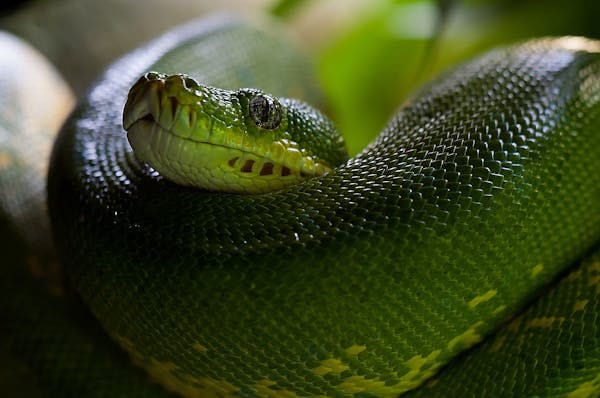

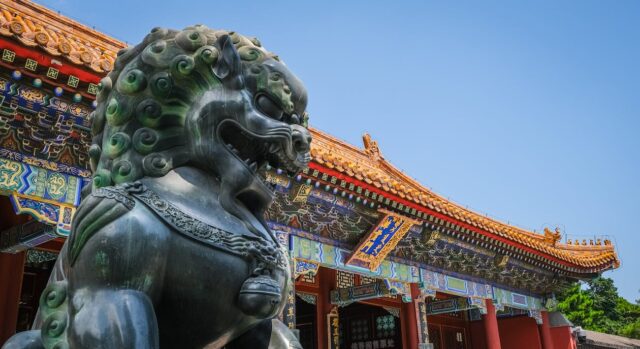

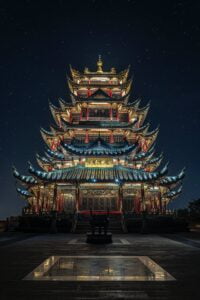 I have been using Feng Shui for many years to enhance various aspects of my life, and I have professionally practised Feng Shui for thousands of individuals and businesses all over the world. Feng Shui is an ancient Chinese system of knowledge believed to have originated at least five thousand years ago, and it is mentioned in surviving texts from that era. Similar systems exist in India (known as Vasthu Shastra), Tibet, and Japan (known as Nine Star Ki). Interestingly, Feng Shui also shares some similarities with the ancient Egyptian knowledge, which was brought to Europe during the Crusades and later introduced to North America by European exiles.
I have been using Feng Shui for many years to enhance various aspects of my life, and I have professionally practised Feng Shui for thousands of individuals and businesses all over the world. Feng Shui is an ancient Chinese system of knowledge believed to have originated at least five thousand years ago, and it is mentioned in surviving texts from that era. Similar systems exist in India (known as Vasthu Shastra), Tibet, and Japan (known as Nine Star Ki). Interestingly, Feng Shui also shares some similarities with the ancient Egyptian knowledge, which was brought to Europe during the Crusades and later introduced to North America by European exiles.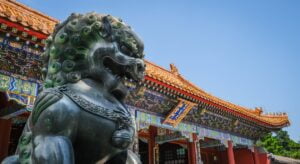
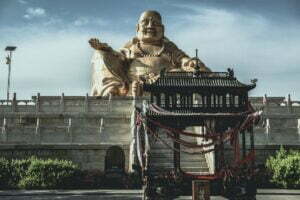


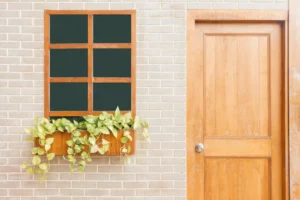
 The Kitchen: Nourishing the Heart of the Home
The Kitchen: Nourishing the Heart of the Home The Outdoor Space: Connecting with Nature
The Outdoor Space: Connecting with Nature